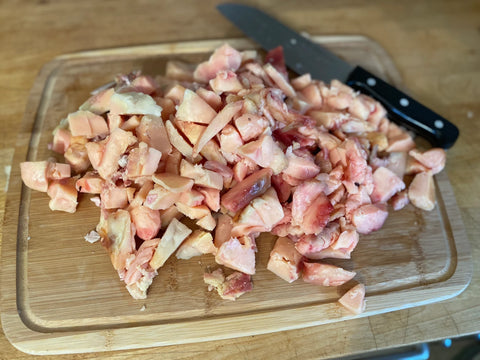
The Virtues of Animal Fat: Health Benefits, Historical Significance, and More
In the contemporary era of health consciousness, animal fats often get a bad rap. Media and certain health narratives have framed these fats as villains in our diet. However, delving deeper into the nutritional science and historical context paints a different, more nuanced picture. Animal fats have, in fact, played a pivotal role in human nutrition and culinary traditions for millennia.
The Historical Diet of our Ancestors
Long before the advent of agriculture, our hunter-gatherer ancestors primarily relied on animal-based foods, which naturally included animal fats. The consumption of animal fats wasn't just incidental; it was intentional. These fats provided a concentrated source of energy, essential for survival in environments where food could sometimes be scarce.
In many indigenous cultures around the world, animal fats from sources such as fish, seals, and land animals have always been prized. They played pivotal roles not just as foods, but also as mediums for cooking, sources of light, and even in rituals and ceremonies.
The Nutritional Virtues of Animal Fat
1. Rich in Vitamins: Animal fats, especially those from grass-fed or pastured animals, are rich in fat-soluble vitamins such as A, D, E, and K. These vitamins play essential roles in our body from supporting bone health to aiding vision.
2. Beneficial Fatty Acids: Grass-fed animal fats contain an increased omega-3 to omega-6 ratio compared to their grain-fed counterparts. Balanced omega ratios are associated with reduced inflammation and a lower risk of chronic diseases.
3. Natural Source of Cholesterol: Contrary to outdated beliefs, dietary cholesterol (found in animal fats) does not translate directly to high blood cholesterol. In fact, cholesterol is vital for building cell membranes, producing hormones, and other bodily functions.
4. Satiety and Satisfaction: Fats, in general, help you feel satiated after a meal, reducing the urge to snack and possibly aiding in weight management.
Debunking the Myths
In the 20th century, with the rise of heart disease, fats—especially saturated fats from animals—became demonized. The low-fat diet trend took off, and fat-replacement products flooded the market. However, recent studies have started to debunk the myths surrounding saturated fats. Many of these studies suggest that moderate consumption of saturated fats doesn't correlate directly with heart disease as previously believed.
The Role of Animal Fat in Modern Diet
While it's crucial to consider the source of the animal fats (opting for those from animals raised sustainably and ethically), they can indeed fit into a balanced diet. Like all things, moderation is key. Respecting traditional methods of cooking and recognizing the nutritional profile of animal fats allows us to reintroduce them to our diets without guilt.
Final Thoughts
History has provided us with significant evidence of the importance of animal fats in our diets. While it's essential to consider individual health, metabolism, and dietary needs, for many, the benefits of incorporating animal fat are substantial. So next time you savor a juicy steak or enjoy buttery baked goods, remember the rich legacy and the wholesome nutrition that animal fats bring to our tables.
Buffalo fat and beef fat can be used as is, or turned to tallow. Or one can focus eating more specific cuts that are fattier by nature like a chuck roast, or ribeye steak.



